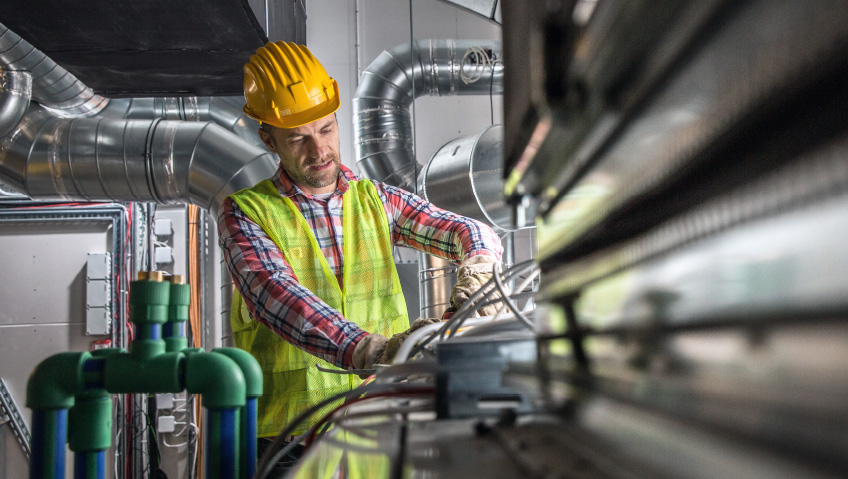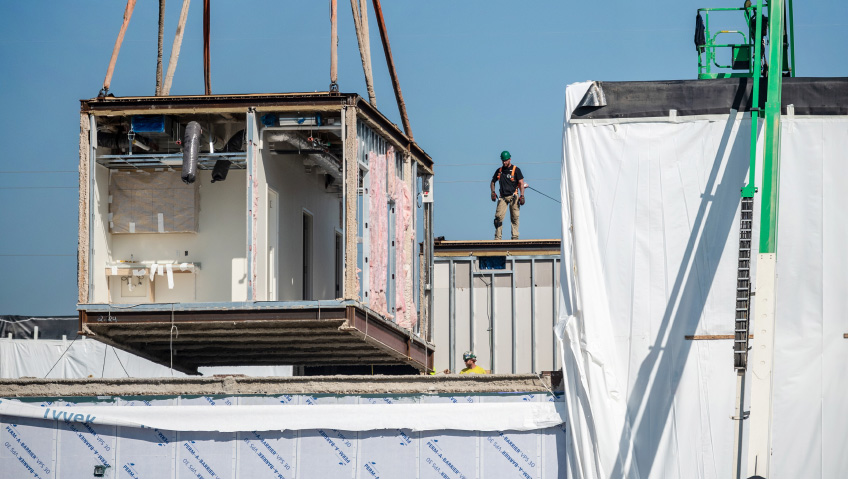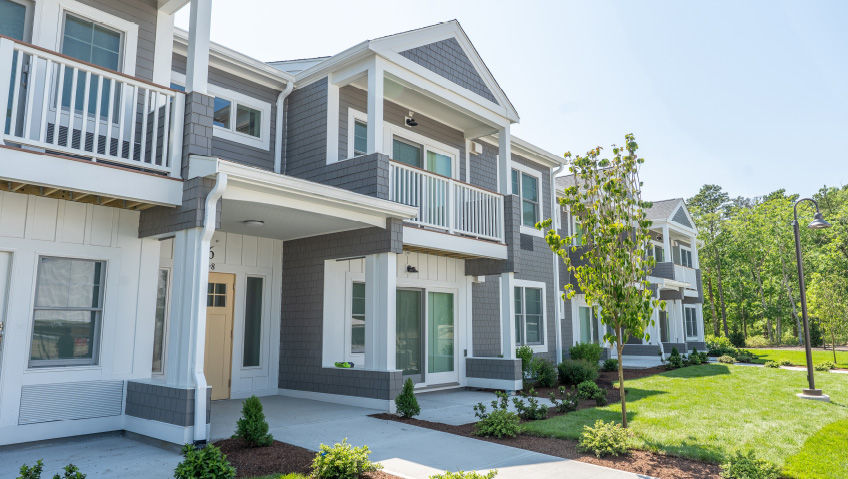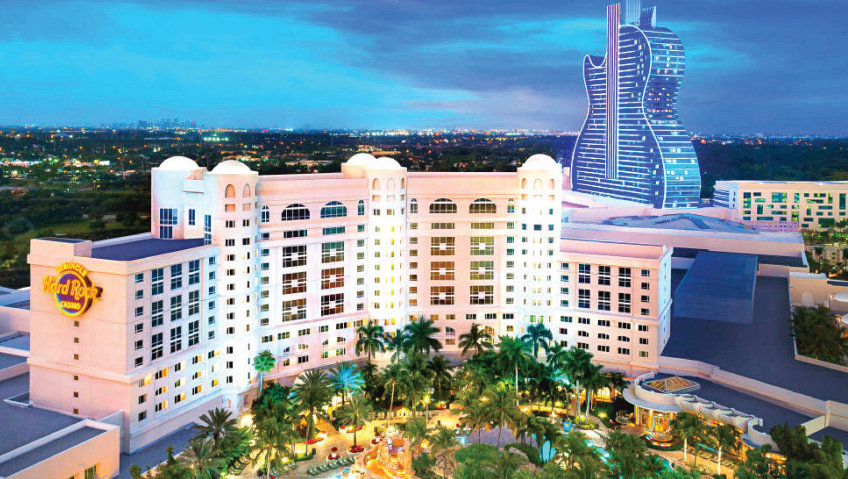From its head office in North Pole and a branch in Wasilla, Alaska, Slayden Plumbing & Heating Inc. (SPHI), incorporated in 1983, has completed public and private projects in more than 75 cities and villages, as well as in remote areas of the state. With an employee base of 100, SPHI is among the largest mechanical contractors in Alaska—but it didn’t begin that way, says company President Jeremiah Raby, who told us how the company started by William (Bill) Slayden in 1979 found its beginnings in the garage at Mr. Slayden’s home.
“Initially he did everything and anything—residential, light commercial, just whatever came his way through opportunities and partnerships with some of his customers. He incorporated his business in 1983, developed relationships with some of the longtime Alaskan and Washington State general contractors, and they brought him in on other projects,” Raby shares. “Eventually, his company started doing mechanical contracting work for the U.S. Department of Defense, with army base housing projects, and so it grew from year to year.”
Complex projects
To better serve its customers, SPHI developed an in-house engineering team, capable of full in-house design build and 3D modeling, which produces arctic grade plumbing, mechanical, and seismic restraint design deliverables for a wide range of projects and customers.
Among the Owners for whom SPHI has completed major projects are the U.S. Army., U.S. Air Force, U.S. Coast Guard, U.S. Space Force, and the Missile Defense Agency, all of which it continues to provide with mechanical and HVAC systems for new and renovated housing, barracks, hangars, warehouses, and office buildings at Eielson Air Force Base, Fort Wainwright, Fort Greely, Clear Space Force Station, and Joint Base Elmendorf Richardson.
All projects in the arctic are complex, such as the construction of the Warrior in Transition Complex at Fort Richardson. This work consisted of an 80-person barracks, a Soldier and Family Assistance Center, Company Operations Facility, and Battalion Headquarters. The mechanical and HVAC specifications, which met LEED standards, included sanitary waste and vents, heating and cooling, snowmelt, ventilation, and humidification systems.
Another major project was the Denali Village at Fort Wainwright. This included 200 new units, installation of storm and sanitary sewer systems, 1,200 feet of steam and condensate piping, and two miles of direct buried glycol heating services.
Other projects under the company’s belt include multi-family housing complexes, elderly housing, HUD housing for Native Americans, shopping malls, restaurants, water treatment plants, hotels, hospital renovations, medical and dental clinics, churches, warehouses, and office buildings. The company has also done extensive work in additions and renovations for schools in Anchorage, Fairbanks, Lower Kuskokwim, and Hooper Bay, which had the added challenge of working in a tight, three-month turnaround while the schools were closed for the summer.
Integrity first
Raby joined the company in 2004 as an apprentice and over the past 19 years, as he rose through the ranks as journeyman, foreman, superintendent, operations manager, vice president, and now president, he watched the company grow. Bill Slayden, who retains ownership, is now semi-retired and doesn’t engage in day-to-day operations but is still very much a part of the company he built.
“I think one of the most important things Bill instilled into the company from the beginning, and subsequently in me as his steward, is the importance of transparency and integrity in business relationships and with our employees,” says Raby.
“This is a small community—we’re the ‘biggest smallest’ state in the U.S.—so relationships are so important because we’re working with the same people and the same customers. There’s no room for unethical or unscrupulous practices internally or with our customers, which include most of the general contractors in the state. That’s one of the foundations of this company; we do what we say we’re going to do,” he says.
“I can also say that Bill is particularly generous with his employees,” Raby adds. “He sponsors many different activities, clubs, and events in support of them. He’s built a community which he understands, appreciates, and values.”
The market for mechanical contractors in the Arctic can be tumultuous, he tells us, and for that reason, it’s important not to hire people only to lay them off at some future point. Every endeavor is made to avoid seasonal fluctuations because an important part of the company’s philosophy is maintaining a work schedule that permits the continuity of work teams. “We don’t want to have two hundred people on board this summer and then have to lay them off to trim down to a hundred.”
Since the early days, SPHI has used the most modern equipment, tools, and techniques available to attract and retain the highest level of workers in the industry. It also provides workforce training through its certified apprenticeship programs, recognized as one of the founding members of the Alaska Chapter of Associated Builders and Contractors.
Even so, it’s not easy to find skilled trades or people who want to train, Raby says, pointing to a nationwide education system that for several decades has sidelined trades and “put up the false precept that if you don’t go to university, you won’t be successful and instead be an uneducated ditch digger. But some of the most intelligent, productive people I’ve ever met are in the trades.”
He notes that all the work, especially that involved in mechanical contracting, is technically complex, with equipment and processes informed by advanced technology and a skill set that combines that knowledge with challenging work in the elements.
“I think the public education system has devalued trades and painted a false picture of what it takes to build our nation’s infrastructure, which has culminated in the difficulty we now face across the country,” he says. “Sadly, people have been ingrained with the wrong ideas about construction and it’s just categorically false.”
Safety is paramount
For owner and founder Bill Slayden, valuing his team has always meant keeping them safe, which is extraordinarily complex in an industry that is inherently dangerous. On a busy job site, forklifts and cranes hoist heavy parts and pieces while workers using torches and heavy equipment weld them into place, which is why SPHI maintains a robust safety program. Raby calls it “a risky line of work with a lot of opportunities for burns and [other] injuries.”
He is adamant that, “We must maintain an active effort and revisit safety practices constantly because even the very best of crews can fall victim to complacency. It’s part of the human condition and affects all of us. You can get numb to the idea that what you’re working on is in fact very dangerous and could result in bodily harm if one little thing doesn’t go right, so we have reminders, safeguards, and protocols about everything we do. It’s a real effort to make sure everyone goes home as they came in.”
A critical piece of the safety puzzle at SPHI involves the culture surrounding the consistent use of personal protective equipment, which includes getting feedback from workers as to the kind of safety gear they want to use. “We want them to feel comfortable, and give them options, knowing that the higher the comfort level, the more likely they are to use it and use it properly. We will buy them any safety gear they want, as long as they wear it. We don’t put them into the cheapest stuff and say, ‘If you want something better, you’re on your own.’ We get feedback about individual brands and models and what they want to use and wear, and that’s what we buy.”
As a result, SPHI enjoys an extremely low worker’s compensation rate and that number translates into lower insurance premiums, something customers look at when evaluating proposals.
For the past forty years, Slayden Plumbing & Heating Inc. has enjoyed a reputation for safe working conditions and valuing its community and its workforce. This, coupled with providing employment opportunities at a financially stable company that’s making a huge difference in the economy of Alaska, makes for a winning combination and surely, many years of success yet to come.






